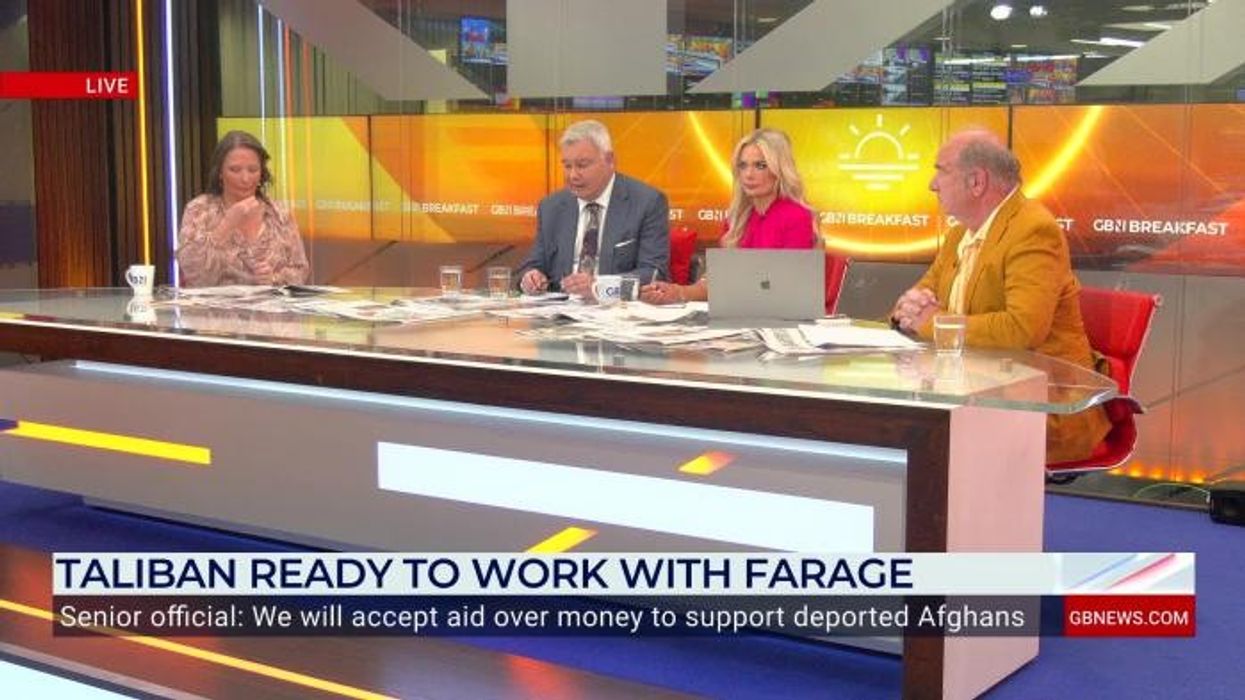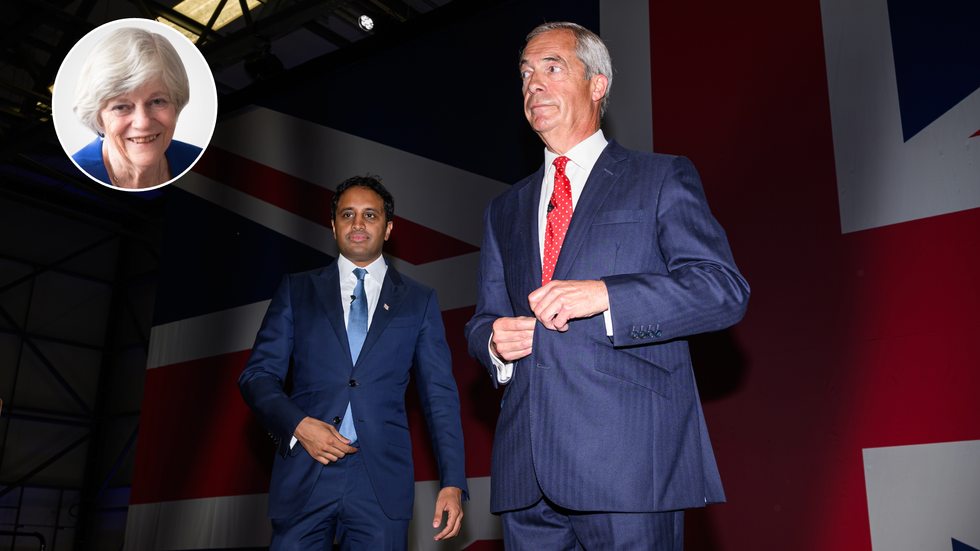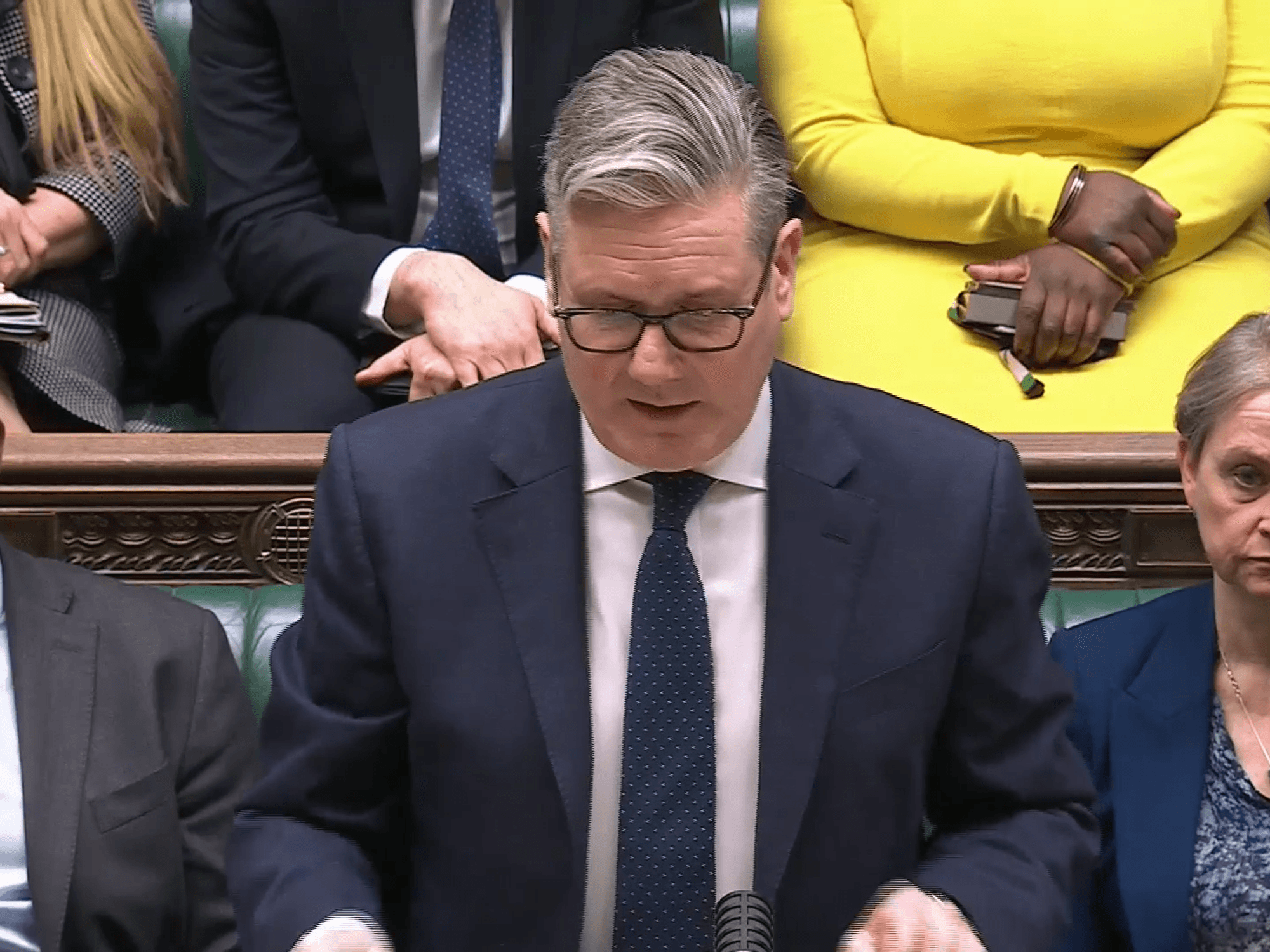How can you deport the disappeared? Reform are missing one key piece of the puzzle - Ann Widdecombe

Clare Muldoon and Norman Baker clash over Nigel Farage and Reform UK's stance on illegal immigration into the UK |
GB

Identity cards would be invaluable in the fight against unlawful immigration, says the former Conservative MP
Don't Miss
Most Read
Trending on GB News
It was a civil servant who first gave me the idea. In the mid 1990s, I was the immigration minister in John Major's government and trying to find ways of reducing the rampant abuse of our asylum system.
Our biggest problem was the ease with which it was possible to disappear in Britain, compared to other countries in the west which had national identity cards.
The message which went out was “come to Britain with a false or frivolous claim and you are very unlikely ever to be removed”.
**ARE YOU READING THIS ON OUR APP? DOWNLOAD NOW FOR THE BEST GB NEWS EXPERIENCE**
The civil servant in question remarked, almost as an aside, that unless we had national identity cards or universal detention we would never be able to solve the problem of people disappearing into the underground economy.
Identity cards were fraught with political difficulty, but I began to look at universal detention and when, two years later William Hague appointed me Shadow Home Secretary, I adopted it as Conservative policy for the 2001 election.

How can you deport the disappeared? Reform is missing one key piece of the puzzle - Ann Widdecombe
|Getty Images
Oliver Letwin, who succeeded me in the role, took it a stage further and proposed offshore detention, believing that would make the deterrent more powerful.
If only we had started then, there would probably never have been a small boats crisis!
For some reason, subsequent Tory leaders did not carry on the policy until recently, after Reform UK had been pressing it since its inception, Kemi Badenoch suddenly dared to mention secure camps. Well, better late than never.
That is now central to Reform policy, along with the necessary sequel, which is to deport the occupants, who, if they have come from safe countries such as France, will be deemed to have no claim for asylum. They will be sent back to their own countries without the right of appeal.
It is also likely that we will use safe third countries such as Rwanda if, say, Afghan or Eritrean nationals prefer.
It will also be essential to clear the decks of the sort of legal obstacles which damned the Tories’ Rwanda scheme, particularly the ECHR and the 1951 Geneva Convention on Refugees, which was ideal for its time but is a liability now.
The cry has gone up that we will be returning people to torture or oppression under the Taliban, but anybody who is genuinely in that much fear of persecution can apply to any one of a number of perfectly safe countries through which they have traversed on their way to Calais and the boats.
Thus far, I have talked about Reform policy, but what follows is not party policy but the view of Ann Widdecombe.
I favour the introduction of national identity cards, even if only for a specified number of years.
It is a simple fact that we have no idea how many people are here illegally.
They pay no taxes or national insurance, have long ago destroyed their documentation and live and work under the radar.
Some are effectively slaves, afraid to complain to the authorities.
Yes, there is a lot of fear of loss of liberty but so there was when CCTV became mainstream.
I was in Parliament at the time, and the public complained about “the spy in the sky” and about the intrusion inflicted upon citizens going about their lawful occasions.
Government shrugged: no council or other public body had to have it. Then came the pictures of the abduction of little Jamie Bulger, and suddenly the demand for CCTV exceeded the supply.
I am convinced that the first time a major crime was solved by the use of national identity cards, the objections would fall away, and they would be accepted as readily as CCTV is now.
Meanwhile, they would be invaluable in the fight against unlawful immigration. However, as I say, that is my policy, not Reform’s.
At last, we have a leader of a major political party who is actually focussed on the immigration problem.
Maybe his success will inspire other leaders to follow, but don’t hold your breath.
More From GB News










